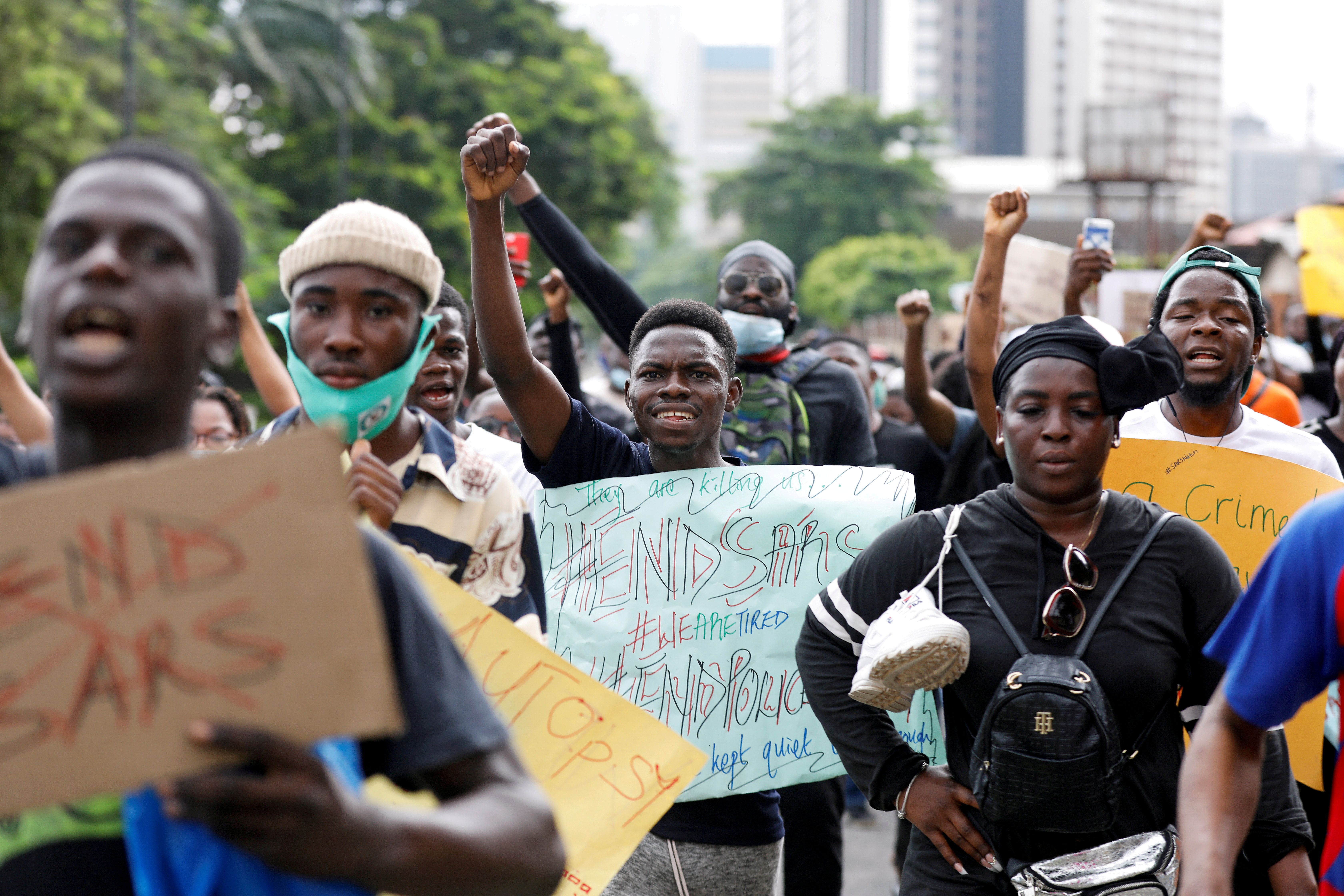Nigeria reckons with police brutality: Fed up with a federal police unit accused of warrantless arrests, torture and murder, thousands of Nigerians took to the streets over the weekend to demand the government dissolve the notorious Special Anti-Robbery Squad (SARS). The protests were sparked by a viral video of a man allegedly being beaten to death by SARS agents. Although President Muhammadu Buhari has agreed to disband the unit, protesters say that doesn't go far enough and demand sweepingchanges to policing in Nigeria as they did over the summer in the aftermath of the George Floyd rallies against police brutality in the US. The protests have spread outside the country and gotten attention from celebritiesand influencers on social media, where the hashtag #EndSARS has trended globally for days. We're watching to see if the movement gains enough traction for Buhari to accept an overhaul of the entire police system in Nigeria, where police officers are immensely powerful.
US-China spar over Taiwan: The Trump administration is moving forward on several deals to supply high-tech weapons and military equipment to Taiwan, as the territory — which Beijing claims is part of mainland China — is rapidly becoming a pawn in the US-China rivalry. The Trump administration notified the US Congress that it has approved the sale of sophisticated weapons to Taipei — including drones and long-range missiles — all of which could help Taiwan defend itself from a potential Chinese invasion. Beijing reacted by demanding Washington halt all sales in accordance with the "One China" policy that does not recognize Taiwan's independence. Meanwhile, Washington and Beijing also traded barbs over this week's meeting of the "Quad" group of countries (the US, Japan, Australia, and India), which China views as an American attempt to create a NATO-style military alliance as a bulwark against Chinese influence in the Indo-Pacific region. Whatever happens with the Quad in the future, it's clear that Beijing and Washington are unwilling to ease tensions over Taiwan, and the question is not if but rather when China will move to retake its renegade province by force.
Argentinians are furious: As Argentina's COVID-19 caseload surpassed 900,000 this week, thousands of protesters across several cities demonstrated against the government's handling of the pandemic. Protesters say that after months of mismanaged lockdowns, center-left President Alberto Fernández has been unable to contain the virus' spread or implement measures to help boost the country's battered economy (even before the pandemic, Argentina had suffered from years of recession). Critics argue that the real person in charge is Cristina Fernández de Kirchner, the powerful vice president and former chief executive who has faced a string of corruption and criminal charges in recent years. For the opposition, the Fernández-Kirchner duo has used the COVID crisis to crack down on individual freedoms and to surreptitiously pass unpopular reforms that undermine the independence of the judicial system to protect government allies with pending court cases (including Kirchner herself). This is the fifth spontaneous mass protest to erupt in Argentina in recent months, and as the pandemic only worsens, angry Argentinians likely think they have little to lose.More For You
As expected, the Supreme Court struck down the bulk of Donald Trump's sweeping “Liberation Day” tariffs as illegal … and almost nothing changed.
Most Popular
What’s Good Wednesdays™, February 25, 2026
Small businesses at a crossroads
Chris, an Army veteran, started his Walmart journey over 25 years ago as an hourly associate. Today, he manages a Distribution Center and serves as a mentor, helping others navigate their own paths to success. At Walmart, associates have the opportunity to take advantage of the pathways, perks, and pay that come with the job — with or without a college degree. In fact, more than 75% of Walmart management started as hourly associates. Learn more about how over 130,000 associates were promoted into roles of greater responsibility and higher pay in FY25.
Somewhere in the Donbas region, Ukrainian soldier Artem Bondarenko says he hasn’t slept through the night in months as he defends Eastern Ukraine.
In the latest episode of Vladimir Putin and Xi Jinping's hit wellness podcast This Authoritarian Life, we learn how positive communication patterns can break negative cycles in our relationships -- especially our relationships with Iran, Syria, Venezuela, and Cuba. #PUPPETREGIME
